Over the summer of 2022, FX released the first season of their soon-to-be hit TV show THE BEAR on Hulu—a program set around a fictional Italian beef restaurant in my home, the city of Chicago. One particularly memorable episode of that first season begins with a cold open onto a montage of various sights and sounds around the city as it rises to meet the morning, prefaced by audio of legendary WXRT morning DJ Lin Brehmer introducing the only song that could possibly soundtrack such a sequence: “Chicago” by Sufjan Stevens. Less than a month after the debut of that episode, Lin Brehmer announced that he would be taking a leave of absence from the airwaves to undergo treatment for prostate cancer. A little more than six months after that, Lin Brehmer was dead.
Already, the Chicago portrayed in the show was gone, changed forever for lack of Lin’s voice and warmth beaming into thousands of cars on the morning commute every weekday. But what about the song? “Chicago” is the gravitational and thematic center of Stevens’ 2005 masterpiece ILLINOIS, a stunning auteur achievement the likes of which we’ve rarely seen in the two decades since. In it, Stevens—a Michigan native—recalls adolescent sojourns taken to the big city across the lake, the joyful memories he keeps of them, the mistakes made along the way (a lot of them!), and lessons learned that turned him into the person he became later on. The Chicago that Sufjan recalls, along with the Sufjan that visited it, are also gone, never to return—all things go, all things grow.
ILLINOIS (don’t be fooled by the album cover, the title is just ILLINOIS) was the second album in what Stevens was at one time pretending would be a series of 50 albums, one for each state, following, of course, an album for Stevens’ home state, MICHIGAN. Whether or not Stevens ever earnestly intended to attempt this as a project is unclear, but it never went any further than the first two. And it’s just as well, since ILLINOIS is an explosive and breathtaking record that the other 48 states would have a very difficult time trying to follow. ILLINOIS clocks in well over an hour in length, compositionally ambitious and lushly arranged—it’s easy to envision Stevens at the helm of a chamber orchestra in the studio, enlisting the talents of a couple dozen supremely talented musicians to bring his vibrant visions to life. The truth is even more flabbergasting: Almost every single instrument on the entire record is performed by Stevens himself, save for his backing vocalists, a trumpet player, and a string quartet. Stevens handled all of the guitars, keys and synthesizers, woodwinds, drums and percussion, production, engineering, and more for the whole album, a musical feat difficult to imagine, let alone believe.
By taking on almost the entire project of the album’s creation singlehandedly, Stevens eliminated all compromise or sacrifice between his ideas and the listener’s ears. The result is a kaleidoscopic, patchwork portrait of a state with a complex history both triumphant and sordid, the Land of Lincoln and Douglas, a prodigious incubator of organized crime and corruption, an epicenter of trans-continental trade and a bastion of both agriculture and actual culture. He deftly operates on every scale imaginable, from the heartfelt and strikingly personal (“Decatur,” “Predatory Wasp of the Palisades”), to the devastatingly tragic (“John Wayne Gacy Jr.,” “Casimir Pulaski Day”), to the grandiose and soaring (“Come On! Feel the Illinoise!,” “The Tallest Man, The Broadest Shoulders”). The array of moods on display is genuinely dizzying, and as Stevens effortlessly traipses through this encyclopedia of historical detail, literary allusion, latent spirituality, and personal experience, it quickly becomes clear that his sights are aimed much higher than just portraying one single state in a doomed series of 50.
Like Springsteen before him, Sufjan Stevens has always seemed to associate Independence Day with a deep, ancestral melancholy, with dissolution and mortality (see the crushing “Fourth of July” from his 2016 elegy CARRIE & LOWELL). It hardly seems coincidental that ILLINOIS was released on July 4th, a Monday in 2005, rather than the then-traditional Tuesday for new albums. It is certainly a case study of its namesake state, but in many ways Illinois is an ideal microcosm for America as a whole—home to both a towering metropolis and a robust rural landscape, bridging the Great Lakes with the Confederate South and the Western frontier. The stories being told on ILLINOIS are Illinois stories, and their specificity gives them immense power. Speaking as a lifelong Illinoisan, I’ve been to these places, I’ve known these people. I grew up in the town where Mary Todd Lincoln was institutionalized, I have uncles and Boy Scout leaders who knew John Wayne Gacy personally, I’ve celebrated Pulaski Day with my friends, I’ve been to Decatur and Peoria and the Rock River, I walk in the shadow of the Sears Tower every day when I go to work.
That all being said, they are also American stories, stories that could be told in any place in the country and ring every bit as true as they do to me now. America is a place where innovation has thrived for centuries, where technology and art have reached for and attained higher heights than ever before, anywhere in the world. America is a place where people were forced to flee for their lives across thousands of miles of unknown terrain simply because of the color of their skin, and where those who professed beliefs unfamiliar to the masses were unmercifully lynched for their trouble. America is a place where millions have led meaningful lives, nurtured families, and preserved cultures across countless generations. America is a place where Evangelicals break bread with serial killers and speak in tongues over the bodies of cancer patients, only for them to waste away and die just the same. America is a place where people can find love, and be ostracized from their community for pursuing that very same love. ILLINOIS captures all of this and much more, the beauty and vitality and agony and injustice of the American experience.
As the shamelessly kleptocratic and fascistic Trump administration gleefully signs off on the gutting of America’s social safety net in service of funnelling obscene riches into the coffers of the ultra-wealthy and funding an authoritarian police force to whisk racial minorities off the streets and into barbaric prison camps, it’s worth asking what exactly the Fourth of July is even celebrating this year. The idealized fantasy of America peddled by lecherous conservative grifters to the downtrodden has never existed at any time—things have never been perfect here, nor have they been anywhere. But this year, with the 250th anniversary only a year away, due process withering on the vine, and the deranged freak in the White House making ever more explicit overtures about deporting naturalized citizens to foreign countries, the idea of celebrating the nation feels willfully ignorant, if not just downright repulsive. Instead, I’ll be taking some cues from ILLINOIS; like Sufjan’s Chicago, the America described in these songs isn’t the America we live in today, but through community and solidarity, we can make it into something better than either one. Instead of celebrating the stars and stripes, we can celebrate our sense of each other—we have a lot to give one another.


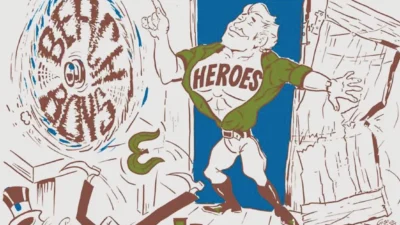
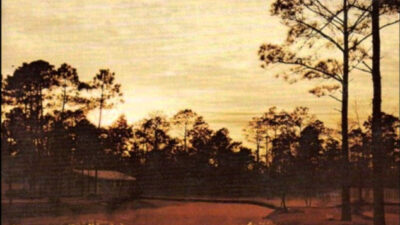
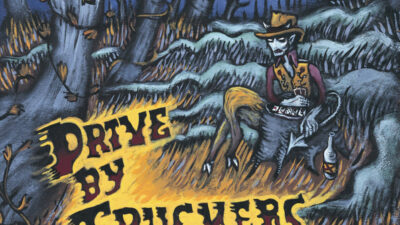

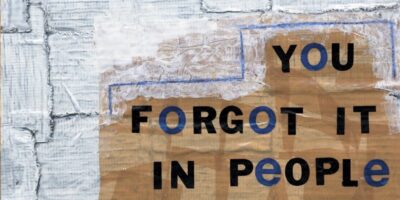


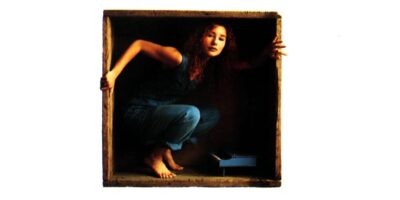






Such a fantastic and thoughtful piece. Love thinking about my fav album from new perspectives